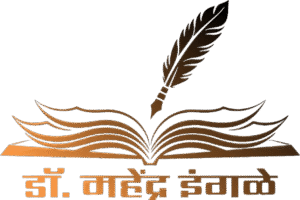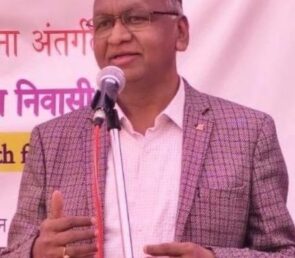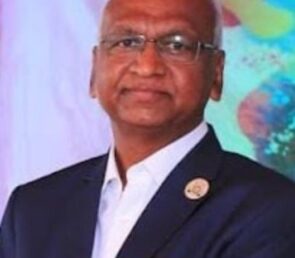
Navigating Systems: Struggle, Leadership & Transformation
Date : July 18, 2025 By
System, whether Social, Political or Bureaucratic always tends to resist change. Challenging the system from within is a difficult task. Individuals act differently when alone compared to when they are part of the system. People are parts of the system, and are driven by emotions, incentives, relationships, and unpredictable elements.
True leadership demands self awareness, keen judgment, and strategic action. It requires not only knowing oneself but also understanding others. Experiences, introspection, and intuition help build relationships and navigate organizational power structures. True wisdom lies in identifying the people not by their words, but by their integrity, commitment, and consistency.
One of the greatest, yet most overlooked skills in leadership and activism is knowing when to step back. Many individuals spend their lives fighting, only to be consumed by the very struggle they sought to overcome. Leadership is not just about perseverance, it is about timing, adaptability, and the ability to pass the mantle when necessary. Few manage this transition gracefully. I am very impressed by the example of Sri Aurobindo. Initially a revolutionary, deeply engaged in India’s independence movement, he later withdrew from political activism, recognizing that transformation begins within. His shift toward spirituality was not an abandonment of his mission, it was an evolution.
Through every struggle, from my student days onward, I have learned, introspected and evolved.
I reflect on one such incident in my career. As the General Secretary of the Maharashtra Government Polytechnic Teachers’ Welfare Association, I fought tirelessly for educational reforms. Our organisation pursued the demands for pay scale implementation, filling vacant positions, overdue promotions, and inclusion of teachers for PhDs under the Quality Improvement Program.
Then came a government resolution bifurcating teaching and administrative cadres, stripping teachers of future promotional opportunities. Recognizing its injustice, as a representative of the association, I challenged it in High Court.
Another battle I undertook was against flawed procurement practices, insisting that payments for contractors be released only after machinery installation and commissioning, preventing institutions from being left with defective equipment’s. The issue was also raised in the Assembly.
Annoyed by my interventions, the department sought to put me on back foot by transfering me at the Government Polytechnic, Sakoli. Some good hearted sympathisers in the system had already informed me about this. Under normal circumstances, I would have gladly moved. I had friends in nearly every polytechnic in the state. As I had not completed my tenure, the transfer was agaist law. The intention behind it was to harass me and to demoralise the association. So, I decided to fight against it, in my own way. I did not approach MAT, as it would be time cosumimg and financially draining. Instead, I took a bolder route. I met personaly to the Chief Minister and presented my case. Though relieved from my previous position, I did not assume the new role. I simply waited for justice.
For 105 days, I endured this battle, preparing myself mentally and spiritually. I found solace in spiritual reading, staying calm and composed. I distanced myself from departmental affairs, but my colleagues remained deeply concerned. Meanwhile, the department sought to intimidate me, sending threats of disciplinary action. I stood firm, refusing to bow down. Then I received a letter demanding an explaination for my direct appeal to the Chief Minister. It claimed that wrtting to or meeting a higher authority without permission was against rules.
In my response, I cited the Constitution of India, referencing articles 12 and 14, elaborating on the concept of a Welfare State, the role of civil servants, and the establishment of CAT and MAT under Article 323-A to protect employees from state injustice. I argued that, every citizen, including civil servants, has the fundamental right to seek justice from higher authorities when faced with unfair treatment. I strengthed my position by citing Maharashtra Civil Services Rules, and drew wisdom from Jagatrao Sonawane’s books on governance and administration.
Word spread quickly. As our association was also affiliated to Rajpatrit Adhikari Mahasangh, the office bearers of it also urged to the government to revoke of my transfer.
Eventually a senior official from mantralaya reached me, saying: ‘Revoking of the transfer is in process. Why you are creating mess by writing such letters?’
I responded calmly: ‘It is not a mess. it is simply an explaination demanded by the letter. Every point is substantiated with facts, rules, and regulations. Nothing personal against any one. This is for justice.’
Finally, after 105 days, the transfer was revoked. I returned to the institue and joined my post. That day happened to be Ashtami, a moment of immense spiritual significance. I felt overwhelming surge of energy!
I came to profound realisation: True spiritual discipline is not confined to mountains and temples, it can be practiced any where, even within the four walls of your home!
This experience changed me completely, not just as a professional, but as a person. The lessons I had read in books came alive in those days.
‘When God is with you, who can stand against?’
‘With faith, say, Move! and the Mountain will move!’
Dr. Mahendra Ingale, Former Principal
Pune, April 18, 2025



